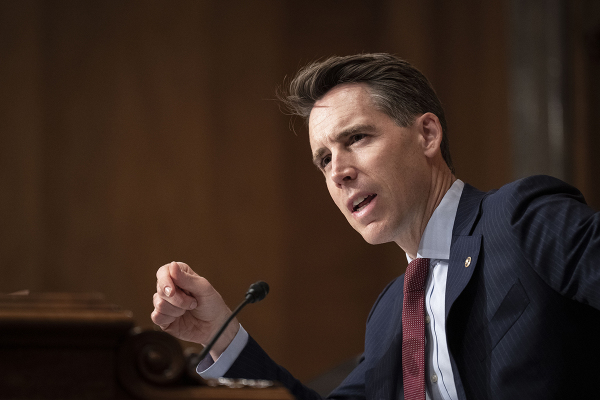French Ban on Religious Symbols in Schools Challenged
WASHINGTON D.C. — Where people "are peacefully practicing their faith, is it really necessary to be outlawing their manifestation of their own faith?" - a senior State Department of the Bush administration posed a question on Thursday whether the French proposal to ban Muslim headscarves and other conspicuous religious items from the public schools is necessary.
John Hanford, the U.S. ambassador at large for international religious freedom took issue with President Jacques Chirac’s call fro legislation to prevent the wearing of religious symbols including headscarves for Muslim girls, large crosses for Christians, and skullcaps for Jewish boys, saying such symbols constitute “a basic right that should be protected.”
Hanford said that because "we don't have all of the details about how France proposes to put this into place, we can't comment entirely on this."
But he continued saying, "A fundamental principle of religious freedom that we work for in many countries of the world, including on this very issue of head scarves, is that all persons should be able to practice their religion and their beliefs peacefully, without government interference, as long as they are doing so without provocation and intimidation of others in society."
Mr. Hanford said that as long as people were wearing such items "as a heartfelt manifestation of their beliefs" — rather than as a provocative act — "this is, we believe, a basic right that should be protected."
In proposing the ban on "excessive" religious symbols, Chirac said Wednesday that secularism in public education "is not negotiable." In response Hanford said that "our hope is religious freedom will be non-negotiable as well."
Mr. Chirac's proposal to preserve separation of state and religion how religious traditions is at the center of debate in France and some other parts of Europe. Many countries are in concern of how religious traditions should be maintained as the increasing number of Muslims in Europe seeking to maintain their own. Mr. Chirac called the Muslim veil a sign of "religious proselytism" and some prominent French intellectuals have identified it as an emblem of the oppression of women.
A French official voiced dismay Thursday at Mr. Hanford's remarks.
"Very often there are debates on the pledge of allegiance or other religious issues in the schools," the official said. "Never have you heard a French diplomat comment on an internal debate in the United States."
Mr. Hanford was speaking as he released the government's annual report on religious freedom, which Congress mandated in 1998. Although the report is most criticizing toward Saudi Arabia, Turkmenistan, North Korea and Vietnam, it mildly rebukes such democratic allies as Israel, Turkey and Germany for discriminating against religious minorities.
Turning to Saudi Arabia, a close ally, the administration repeated that "freedom of religion does not exist."
As it now stands, "freedom of religion is neither denied, but it's certainly not fully guaranteed," Mr. Hanford said.





















